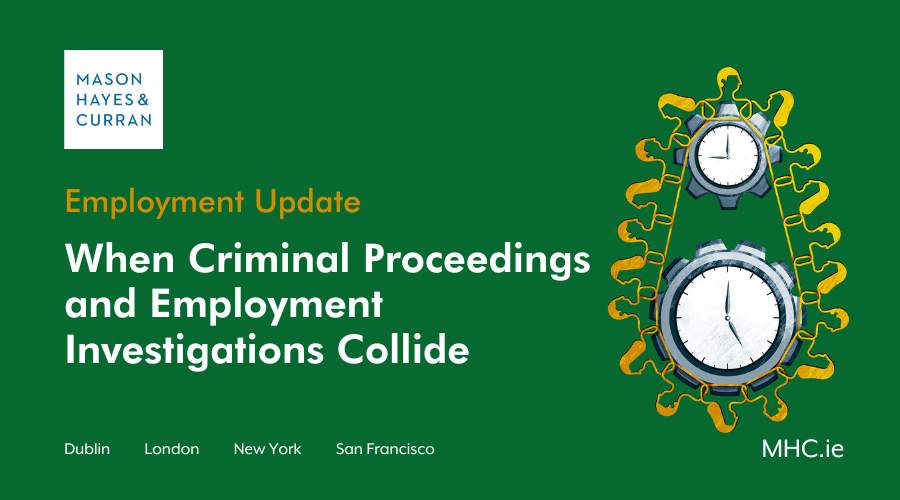
The High Court recently considered a challenge by an Irish prison officer of the decision to deny him legal representation in a disciplinary process.
In this case, an Irish prison officer was alleged to have sent inappropriate messages to the wife of an inmate. This conduct included telling her she was a ‘beautiful girl’ and exchanging photographs. The officer was suspended, and the issues were referred to the Gardaí. Further allegations of inappropriate behaviour subsequently arose including that the officer had smuggled contraband into the prison and that he had threatened an inmate.
Following a formal employment investigation, the officer was invited to a disciplinary meeting. His solicitors were not permitted to attend. They were informed that they could only attend where matters:
- Were very complex
- Had serious potential consequences, and
- Involved particularly difficult matters of law
The situation needed to be exceptional for a right to legal representation to arise. While the allegations were serious, matters were not complex, nor were they exceptional.
In his proceedings before the High Court, the officer alleged his trade union would not represent him as he was under investigation by the Gardaí.
Mr. Justice Barr cited case law which took the view that legal representation was permitted only in exceptional circumstances. The question to be asked was whether ‘from the accused’s point of view, legal representation was needed in the particular circumstances of the case’.
The court also referred to a 2020 decision where it was noted that internal disciplinary processes were not the same as a criminal trial. While an allegation may be a criminal offence, the outcome of a disciplinary procedure would have no weight in a criminal trial. Difficult issues of law or complex facts, coupled with serious allegations and potential consequences might cumulatively require legal representation, again in exceptional circumstances.
New factor for consideration
Mr. Justice Barr raised a new factor for consideration. Where there is an ongoing criminal investigation into the same matter as the disciplinary hearing, or where a prosecution has begun, then the person under investigation may require legal representation. This representation will be required to advise on when they could invoke the privilege against self-incrimination when answering questions in a disciplinary investigation.
Decision
It was subsequently confirmed to the court that there was no ongoing criminal investigation. The inmate’s wife had not made a criminal complaint, and there was no pending or ongoing investigation. The officer could therefore be represented by his trade union.
It was held by Mr. Justice Barr that there were three main issues to address at the disciplinary hearing:
- Whether the officer sent the messages
- Whether the officer made a threat about an inmate
- Whether, assuming the messages were sent, it amounted to inappropriate behaviour
The court determined that these issues did not require an in-depth knowledge of law. Instead, they were questions of fact and legal representation was not necessary to ensure a fair hearing. There was also no risk of the officer incriminating himself in any criminal trial. Therefore, there was no entitlement to legal representation.
Conclusion
This case reaffirms the well-established principle that legal representation in disciplinary procedures is only necessary in exceptional circumstances where there is a complicated legal issue.
Mr. Justice Barr’s comments on the privilege against self-incrimination are particularly interesting. He noted that where a set of circumstances giving rise to an employment investigation or disciplinary hearing also give rise to a criminal investigation, there may well be a right to legal representation to vindicate the privilege against self-incrimination. It will be interesting to see if this principle could also apply regarding parallel proceedings which fall short of the criminal standard.
For more information and expert advice, contact a member of our Employment Law & Benefits team.
The content of this article is provided for information purposes only and does not constitute legal or other advice.
People Also Ask
Do you have the right to legal representation in an employment investigation? |
You have a limited right in certain circumstances, for example where criminal proceedings are ongoing into the same set of facts. |
What is an employee’s representation rights in an employment investigation? |
Employees are generally entitled to be represented by their trade union representative or a colleague but are only entitled to a legal representative in very limited circumstances. |








